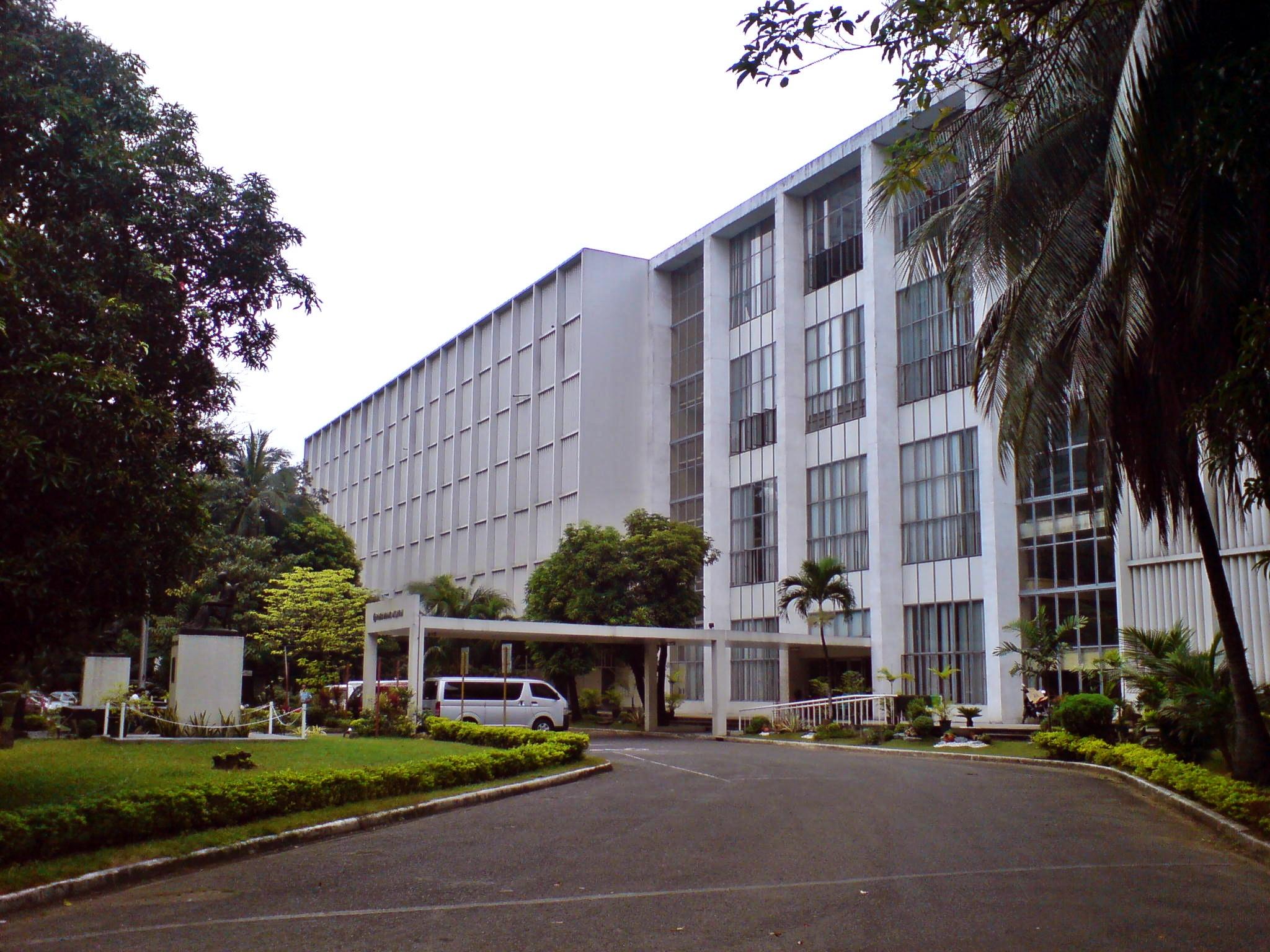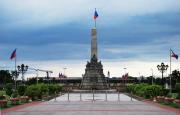
National Library of the Philippines is located at Rizal Park, T.M. Kalaw Avenue, Ermita, Manila
The National Library of the Philippines, formerly the National Library of the Philippine Islands and abbreviated NLP) is the official national library of the Philippines. The complex is located in Ermita on a portion of Rizal Park facing T.M. Kalaw Avenue, neighboring culturally significant buildings such as the Museum of Philippine Political History and the National Historical Commission. Like its neighbors, it is under the jurisdiction of the National Commission for Culture and the Arts (NCCA).
The library is notable for being the home of the original copies of the defining works of José Rizal: Noli Me Tangere, El Filibusterismo and Mi último adiós.
History
On March 9, 1900, the American Circulating Library was established in Manila as a fitting memorial to American servicemen who died in Philippine soil. The Library was organized by Mrs. Charles R. Greenleaf and its first librarian was Nellie Young Egbert. The American Military Governor in the Philippines, by the authority vested in him by the United States Philippine Commission through Public Act No. 96 passed on March 5, 1901, accepted the Circulating Library as a donation of the American Circulating Library Association to the government.
Public Law Act No. 1935, provided for the "the consolidation of all libraries belonging to any branch of the Philippine government for the creation of the Philippine Library," and for the maintenance of the same, and other purposes. To carry out the provisions of this law, a Library Board was constituted consisting of the Secretary of the Public Instruction, the Secretary of Interior, the Secretary of Finance and Justice, and the other members to be appointed annually by the Governor General.
In 1916, The Philippine Library, Division of Archives, Patents, Copyrights and Trademarks of the Executive Bureau and the Law Library of the Philippine assembly were merged into one entity, called the Philippine Library and Museum. Twelve years later, the Philippine Legislature separated the museum from the library. Public Law No. 3477 (1928) established the National Museum under the Department of Agriculture and Natural Resources and changed the name of the Philippine Library and Museum to The National Library.
Without advancing any reason for the order, the President of the Philippines changed the name of The National Library to Bureau of Public Libraries in accordance with Executive Order No. 94, series 1947. This order was followed by the most important piece of legislation enacted in our country up to the present time in so far as public libraries are concerned; Republic Act No. 411, otherwise known as the Municipal Libraries Law, authored by the then Senator Geronima T. Pecson. Republic Act No. 3873 passed in 1964 brought back to the Bureau of Public Libraries its old name, The National Library. Currently, the library is known as the National Library of the Philippines (NLP) pursuant to Republic Act No. 10087 enacted in May 13, 2010. The NLP is located at T.M. Kalaw Street, Manila.
Collections
The collections of the National Library of the Philippines consist of more than 210,000 books; over 880,000 manuscripts, all parts of the Filipiniana Division; more than 170,000 newspaper issues from Metro Manila and across the Philippines; some 66,000 theses and dissertations; 104,000 government publications; 3,800 maps and 53,000 photographs.
The library's collections include large numbers of materials stored on various forms of non-print media, as well as almost 18,000 pieces for use of the Library for the Blind Division. Overall, the National Library has over 1.6 million pieces in its collections, one of the largest among Philippine libraries. Accounted in its collections include valuable Rizaliana pieces, four incunabulas, the original manuscript of Lupang Hinirang (the Philippine national anthem), several sets of The Philippine Islands, 1493-1898, a collection of rare Filipiniana books previously owned by Tabacalera, the Spanish tobacco monopoly, and the documents of five Philippine presidents.
The most prized possessions of the National Library, which include Rizal's Noli Me Tangere, El Filibusterismo and Mi último adiós, three of his unfinished novels and the Philippine Declaration of Independence, are kept in a special double-combination vault at the rare documents section of the Filipiniana Division's reading room.
A significant portion of the National Library's collections are composed of donations and works obtained through both legal deposit and copyright deposit due to the limited budget allocated for the purchase of library materials; the 2007 national budget allocation for the library allocated less than ten million pesos for the purchase of new books. The library also relies on its various donors and exchange partners, which numbered 115 in 2007, for expanding and diversifying its collections. The lack of a sufficient budget has affected the quality of the library's offerings: the Library for the Blind suffers from a shortage of books printed in braille, while the manuscripts of Rizal's masterpieces have reportedly deteriorated due to the lack of funds to support 24-hour air conditioning to aid in its preservation.
Vision and Mission
- Vision
The full intellectual and cultural development of the Filipino people through love for reading all forms of library materials, the lessons and insights of which, enable and empower them to adapt to global technological changes.
- Mission
The National Library of the Philippines as the repository of the printed and recorded cultural heritage of the country and other intellectual literary and information sources shall provide access to these resources for our people’s intellectual growth, citizenship building, life-long learning and enlightenment.
Objectives
- To acquire and preserve Filipiniana materials;
- To provide for an efficient on-line access to the different information resources and national bibliographic services of NLP and the Philippine eLib;
- To develop, in cooperation with the local government units, a system of public libraries and information centers throughout the country;
- To promote, established and maintain national and international standards in library and information services;
- To conduct continuing research on Philippine librarianship and undertake cultural activities.
Service Hours
Offices :
- 8:00 AM to 5:00 PM - Monday to Friday
Reading Rooms :
- 8:00AM to 8:00 PM - Monday to Friday
- 8:00AM to 5:00 PM - Saturday
Iranian Studies Section :
- 8:00 AM to 5:00 PM - Monday, Friday, Saturday
- 12:00 NN to 5:00 PM – Tuesday










